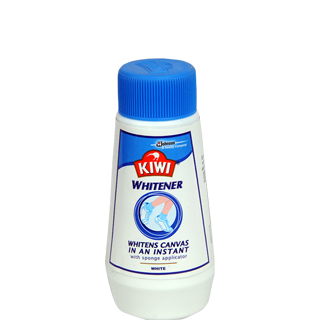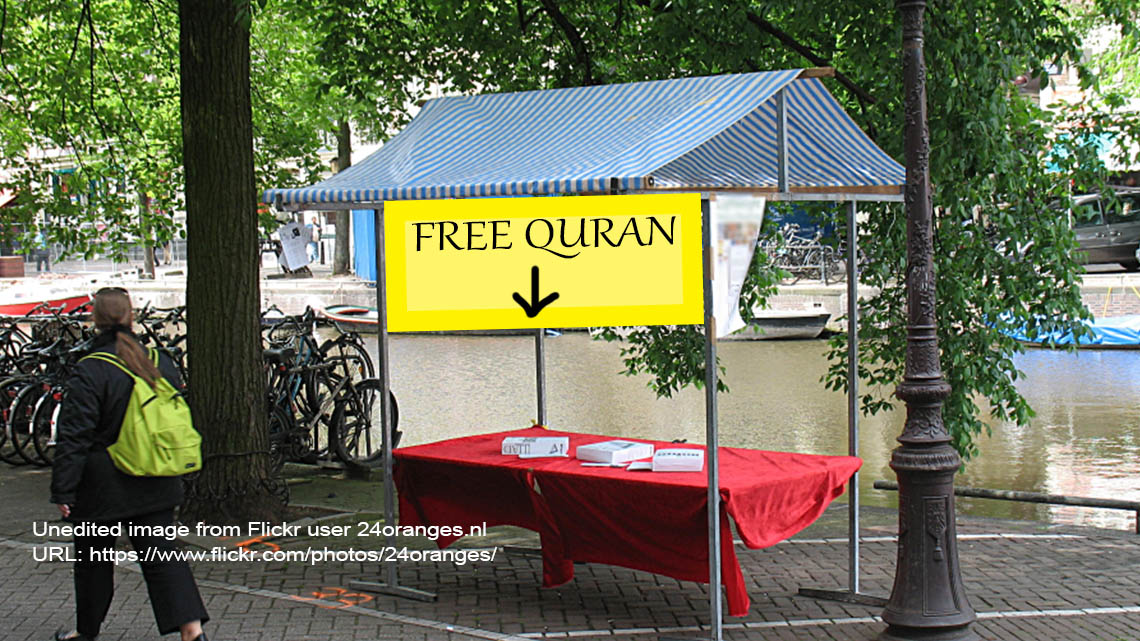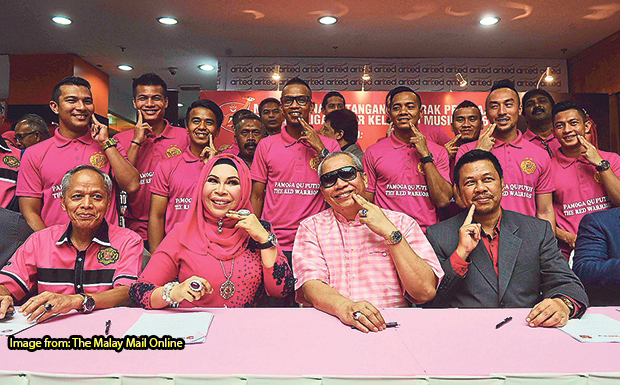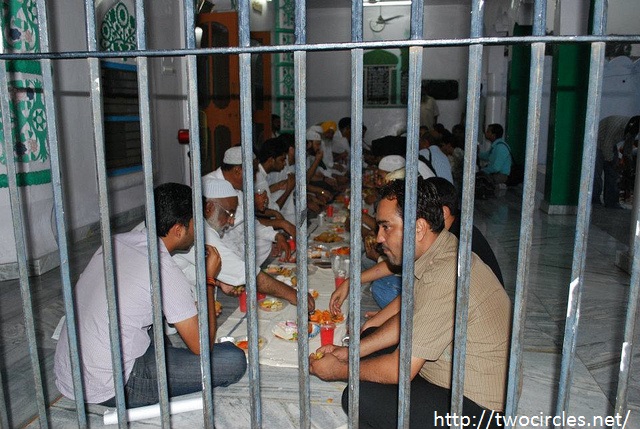6 Types of Malaysian Parents

- 1.0KShares
- Facebook1.0K
- Twitter3
- LinkedIn3
- Email3
- WhatsApp8
Malaysian parents – they make such (in)appropriate fodder for stereotyping lah. In Malaysia truly Asia, you’ve got cultures galore coming together, resulting in a few parenting styles unique to our beloved country.
The parenting scene in Malaysia has changed in bits and pieces since the padi farming days of our ancestors and is still in the state of progression today. With the advent of the Internet and social media, it’s a whole new ball game for parents as they now have scary new challenges to parenting, such as cyberbullying, breakdown of personal barriers and Internet addiction among the youth.
Thankfully the World Wide Web can be their ally and modern-day guide if parents want to look up tips and advice on local sites like theasianparent.com and Positive Parenting, or even share their experiences on forums. Orrr, you could come to a site like ours to compare yourself with other unresearched stereotypes of parents. So, without further ado…. here are our six very typical, run-of-the-mill types of Malaysian parents.
1. Tiger parent

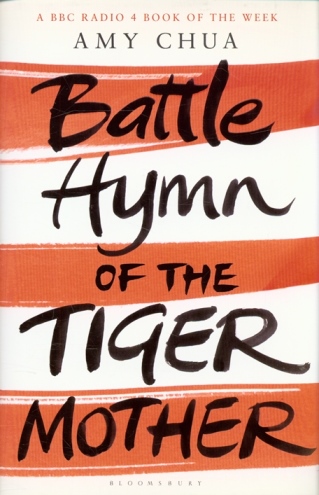
If you’re Malaysian, then you’re bound to have come across this fearsome Asian flavoured parenting style. Who better to give us insight into tiger parenting than author and tiger mother herself, Amy Chua. Amy wrote ‘Battle Hymn of the Tiger Mother’, a memoir about her strict disciplinarian techniques, which she described as traditionally Chinese. In her book, she explains why she believes tiger parenting is “superior”, an approach she chose to bring up her own two daughters.
Amy says that she called one of her children “garbage”. In the same corner, we have “useless”, “stupid” and “good for nothing” – now where have we Malaysian generations heard these before, hmm?Trawling forums, we found evidence that this strong level of parenting can leave children resentful. The irony is that the point of tiger parenting is that parents genuinely believe harsh discipline encourages their children to strive better.

Amy’s methods have drawn much flak from sources like the American Psychological Association and Stanford researchers. For instance, the APA article reports that children of tiger parents have higher rates of depressive symptoms than children with easygoing or supportive parents, as well as high levels of academic pressure and feelings of alienation from parents. In fact, the same article also shows that tiger parenting does not produce child prodigies, and that Chinese parents aren’t falling into the same stereotype, and are in fact also focused on other aspects of their children’s lives.
Amazingly enough, Amy Chua was born in Illinois, the US. However, her Chinese parents (originally from the Philippines) chose to bring her up in their traditional tiger parent way. Over in the US, this species is more commonly referred to as the helicopter parent – as in always hovering over their offspring. Coined by Dr. Haim Ginott, the metaphor was used as early as 1969.

Another aspect familiar to most Malaysians is the tuition culture – one of the most obvious reflections of the competitive nature of tiger parents. Malaysian parents consider giving their children tuition classes as money well spent, according to Free Malaysia Today. In contrast, a discussion on ParenThots has revealed that there are other parents who don’t really subscribe to the tuition culture. Rina Thiagu-Kler believes that if parents could commit the time to tutor their own children, it would be best.

Things you hear from every tiger parent (ever):
- “I work so hard and it’s all for you!”
- “I don’t care, you must do better than Mrs Tan’s son.”
- “I call you useless because I love you.”
- “Do you know any good tuition teachers?”
- “Let me see your report card.”
- “My son is a Cambridge medicine graduate. How about yours?”
- “Listen to me. I know what’s best for you.”
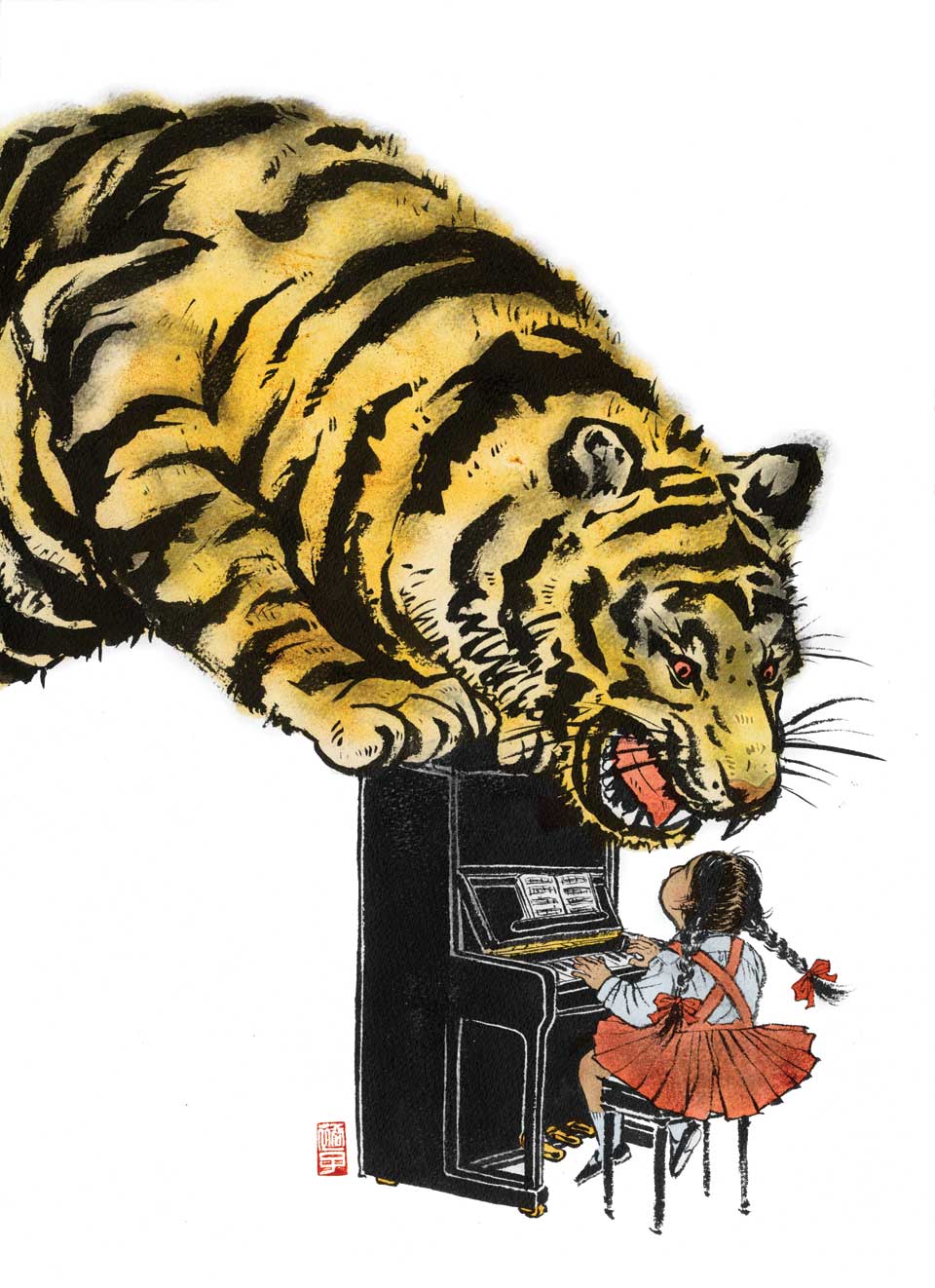
2. Cool beans
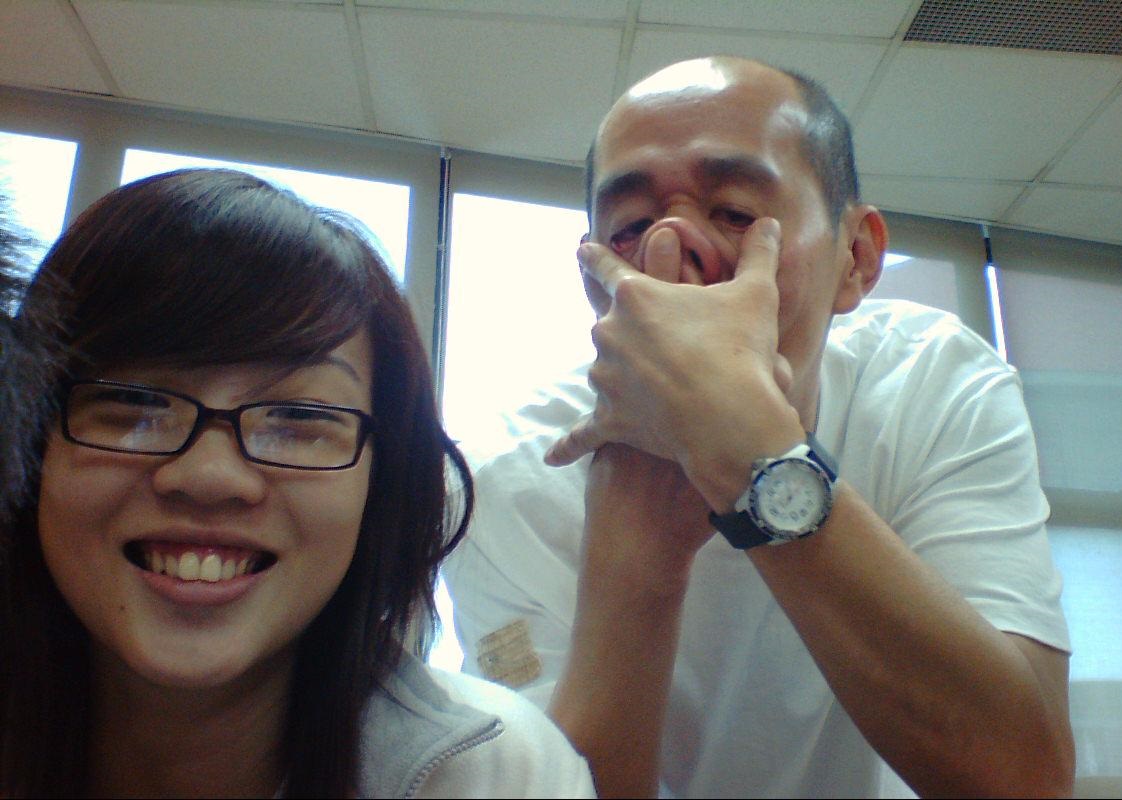
The envy of everyone at school, hasn’t there always been that one kid with his too-cool-for-you parents? Cool parents do try to reach out and be their kids’ besties, while gostan-ing on high and mighty expectations.
Fatimah Abu Bakar, the mother of the Malaysian entertainment industry, had such parents. Reflecting on her wonder years in Penang in her more relaxed family institution, Fatimah recalls how she used to walk around the house like a hippie and that her dad never tried to be the scary Terminator when it came to their daily prayers, even though he practiced it himself.
The upbringing certainly left an impression on her as she herself has become an incredibly cool mother to her four children. You would recognise them to be the Sharifahs Aleya, Amani, Aleysha and Aryana. So how does she define her coolness as a parent? In our books, any parent who doesn’t lose her cool if her daughter (Amani) were to shave of her hair, is ok.

One cool dad even struck gold spending golden moments with his girls when he created the Rainbow Loom. This creation of Ng Cheong Choon’s has now gone global. The idea was conceptualised when he simply wanted to impress his children with a fun recreational activity.

Grab your parents and sit them down to try out this fun quiz. How will they score on their cool quotient. No pressure!

Things cool parents and their kids love doing together:
- Borrowing each other’s clothes
- Inside jokes on each other’s Facebook wall or text
- Insane sports
- Heart-to-heart talks
- A smoke/a beer
- Tongues. Miley Cyrus tongues in photos
- Parents who participate in their kids’ YouTube videos
3. Overindulgent
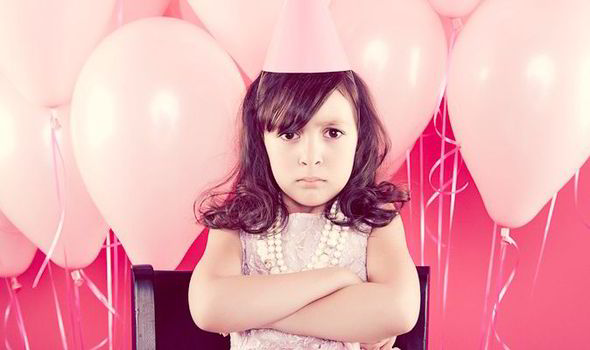
Remember the kid in your class who’s always had designer stuff, Disneyland trips and never used cheapo Kilometrico pens? The same kids whose mums and dads never yelled at them to shut up and sit still, instead of running and screaming, harassing all the patrons inside a restaurant. Yup, that’s ’cause they got all the luck (depending on the way you see it) of being born to overindulgent parents. Here’s how to spot one.
So these kids always, always get their way, as aptly put by this commenter below.
But this trend of overindulgent parenting is beginning to show bugs. Judith Woods from The Telegraph reports that Sweden’s children are growing into troubled teens, who tend to be very disappointed in life. Judith herself believes in what she calls, “an old-fashioned, British brand of child‑rearing”.
On the other end of the scale in Britain, Bea Marshall has not used the word “No” on her sons, Peep (nine) and Jos (eight) since her elder boy was three. Bea allows the boys to choose their own bedtime, crayon on the walls, not do their homework, and even swear at her. Yup, what could possibly go wrong?
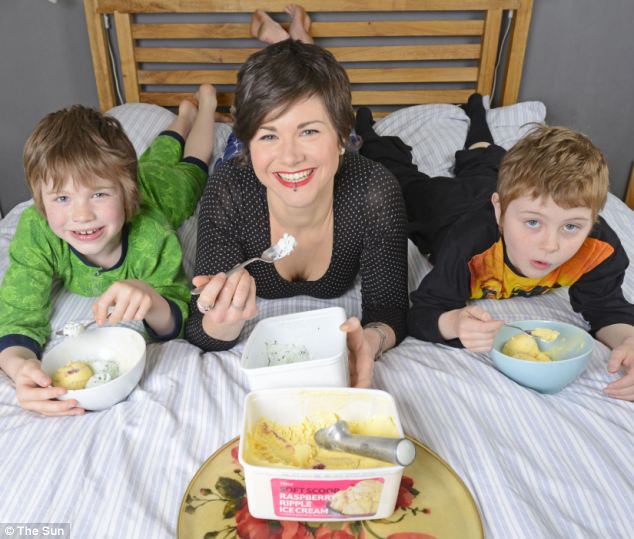
Another issue perhaps more unique to Malaysia, is the overindulgence of parents in our beloved local cuisine. This is causing this generation of young fatties – by that, we mean that obesity is on the rise among Malaysian children. It’s a very Asian thing to make sure our kids are always well-fed. Ya know, ’cause the chubby, prosperous look is so in? And parents always keep an eagle eye on their kids to make sure they finish every grain of rice or the threats let fly.
Editor’s note: I was one of those kids 🙁
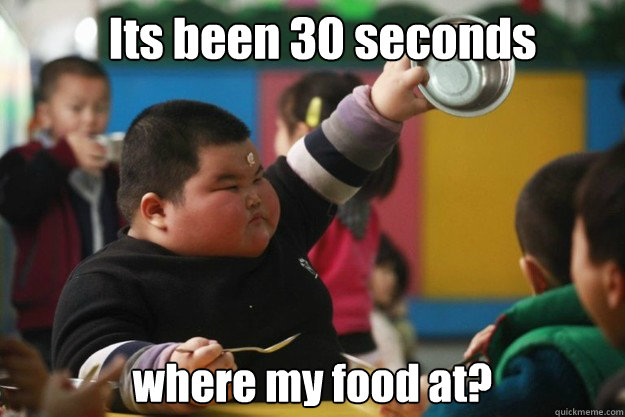
Things kids with overindulgent parents get on their birthdays, you so wished you got:
- Full moon – A swanky soiree for 500 pax at some fancy restaurant
- 5th birthday – Like only the most expensive masak-masak set or the whole Sylvanian Families range
- 8th birthday – A powered riding toy, maybe a mini Harley Davidson or Porsche
- 13th – Some heirloom piece from Tiffany. Show me the karats!
- Sweet sixteenth – They shut down a section at the Genting Highlands theme park and brought in a DJ
- 18th birthday – An actual Harley or Porsche
- 21st birthday – The family fortune
4. Nurturing
The uniforms are crisply starched, that bottle of shoe whitener is sitting in the cabinet as it should be, P’s and Q’s are minded. They make it a point to show up for sweltering hot Hari Sukans and cheer their young athletes on. Perfect? Not likely… but perhaps in many ways, the best chance for kids to grow up well-balanced?
Not to be confused with the overindulgent parent, the trait of the nurturing parent is to understand and mentor but not to let the children get away with bad behaviour. The difference is to cater to the child’s needs (nurturing) versus their wants (overindulgent). They are not unwilling to instil discipline when the situations come a-calling. With a firm but gentle hand, they guide children through right and wrong minus the yelling and whip-cracking drama for all the neighbourhood to hear.

Research has shown that supportive parents produce children who are more emotionally stable and that the children were more likely to succeed. Thankfully, there truly are parents like these, even in our stifled, hierarchical Malaysian family institutions.
Nurturing parents get how important it is to spend quality time with the family and foster a safe, loving environment for children to grow. In this happy home is heard the sound of Barney’s “I love you, you love me…” melody. Samantha Lee, stay-at-home mum extraordinaire, can even give Japanese housewives a run for their money with her insane Kyara-ben creations. All this effort to encourage her young daughters to eat pays off because they do! They down every morsel, which is something considering half a toddler’s meal usually ends up on the floor.
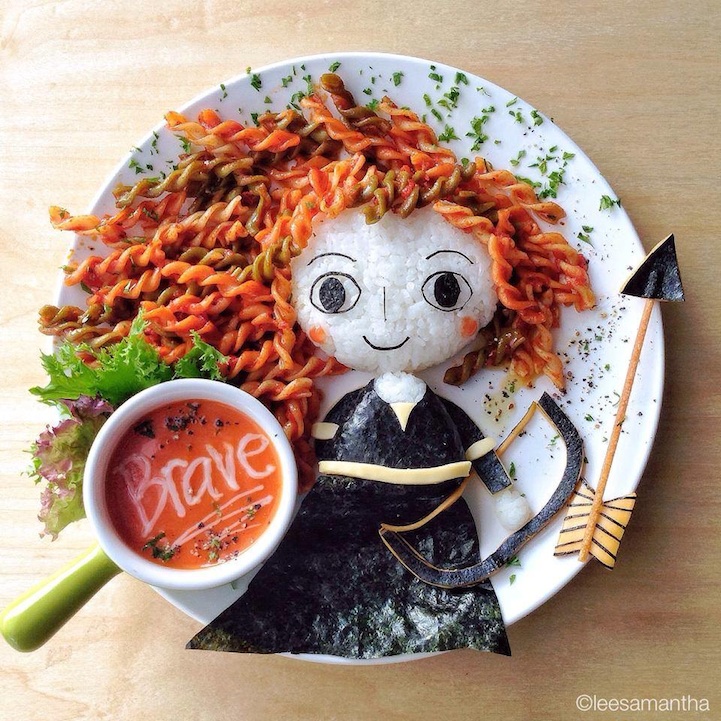
Things nurturing parents want for their children:
- A wonderful and memorable childhood
- Healthy physical, emotional and mental development
- For them to be happy
- To learn independence AND responsibility
- To be there for them through thick and thin
- For them to be happy
- And uhh, for them to be happy
5. Clueless aunty and uncle

Some parents meanwhile are quite comedic in their clueless antics. The clueless aunty and uncle are the folks who live in the 21st century, but are not of it. They are unfamiliar with the mechanics of social media sites (“Ah Boy, how to put in our CNY family photo on the Bookface ah?”). And they just cannot for the life of them understand teen talk…
Son: Yo, dawg, we mamak later at 2!
Clueless dad: Cis, mulut jahat, mengapa pulak panggil kawan anjing?
… or internet memes.
Teen 1: I trolled Devan on Facebook. I’m such a scumbag steve, LOL!
Teen 2: ROFLMAO, like a boss!
Mum: Is that… English?
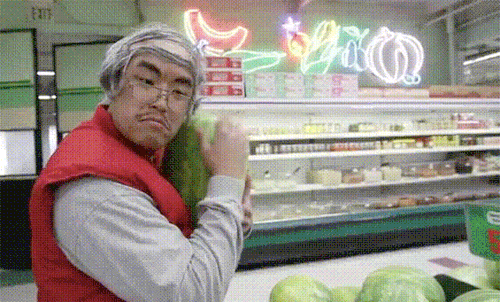
Kenny Toh, Founder of the Institute of Advanced Parentology highlights a worrying habit of so many Malaysian parents. He says parents write off teenagers as unnecessarily rebellious and uncontrollable, and calls it a dangerous generalisation that often sets parents up for trouble. Sounds like these clueless parents don’t know any more than Wednesday’s pasar malam offerings or the old-wives pantangs and the larangs.
If you are a guest at the home of the clueless parent, expect to be bombarded with the usual, “Eat already? You got boyfriend already? What are your SPM results? You want to eat, aunty got biscuit and Milo. How are your parents? You sure you not hungry, ah? You so skinny!” How do you tell if you have clueless parents? From the permanent facepalm mark on your forehead, of course.

Things you should say or do in the presence of the clueless aunty and uncle:
- Polite greetings when you enter the house. Better bring a gift too; maybe Ferrero Rocher or something.
- Make small talk about their health and general welfare. Weather talk is nice too. “Today so hot, must drink more water.”
- Clue them in on your grades. “Yes aunty, I got straight A’s for SPM.” “Yes, I graduated with a Masters in Law, uncle.”
- Compliment their choice of furniture. “You have a very nice house, aunty. Your wooden balls seat cover is so comfortable too!”
- Compliment the aunty’s cooking. “Very delicious, aunty! Thank you for inviting me to dinner.”
- If you are in a Chinese family’s house, just drink the damn herbal brew, vile as it may smell.
- Make nice with the house pet.
- Profusely thank them for having you over and promise to come again… real soon.
6. Rotan parent

Ah, the gruelling rule of the mighty rotan. How many of you can say that you were never smacked even once, raise your hands (no don’t; we can’t see them through our magic bamboo binoculars here). Corporal punishment has indeed shown itself to be beneficial in the upbringing of children. (Not to be confused with corporate punishment: e.g. working at CILISOS).
An analysis conducted by Calvin College (which is an actual college, not a person with a superhero name and lots of time) showed that children who were physically disciplined performed better than those who weren’t, including school grades, an optimistic outlook on life, the willingness to perform volunteer work, and the ambition to further education. Other experts have presented their findings that corporal punishment could actually benefit a child’s behavioural development.
Since the spanking ban, child abuse rates in Sweden have exploded over 500 percent, according to police reports – Newsmax
Then where in the realm of corporal punishment would you draw the line? (Anyone else find their thoughts drifting towards the messy Malaysian-parents-arrested-in-Sweden case?) The National Center for Biotechnology Information cited that on the norm, concerns are raised only when the physical punishment causes serious injury to the child.
Editor’s note: If it were me, I’d draw the line at never hitting your child in anger or injuring them in any permanent way.
In Malaysia, the use of corporal punishment is still lawful at home and in school. Although strangely, school caning is only permitted on boys. How very fair for everyone *rolls eyes*. But meanwhile, many childcare groups have spoken out against corporal punishment and hope that the practice will be eradicated in Malaysian society. Protect and Save (P.S.) The Children programme coordinator, B. Vijay, wants corporal punishment outlawed as he calls it a harmful practice.
However, a lot of Malaysian parents say that they are not ready to do away with corporal punishment yet. If anything, it might even be on the rise here, and possibly past the line of caring and into the realms of abuse.
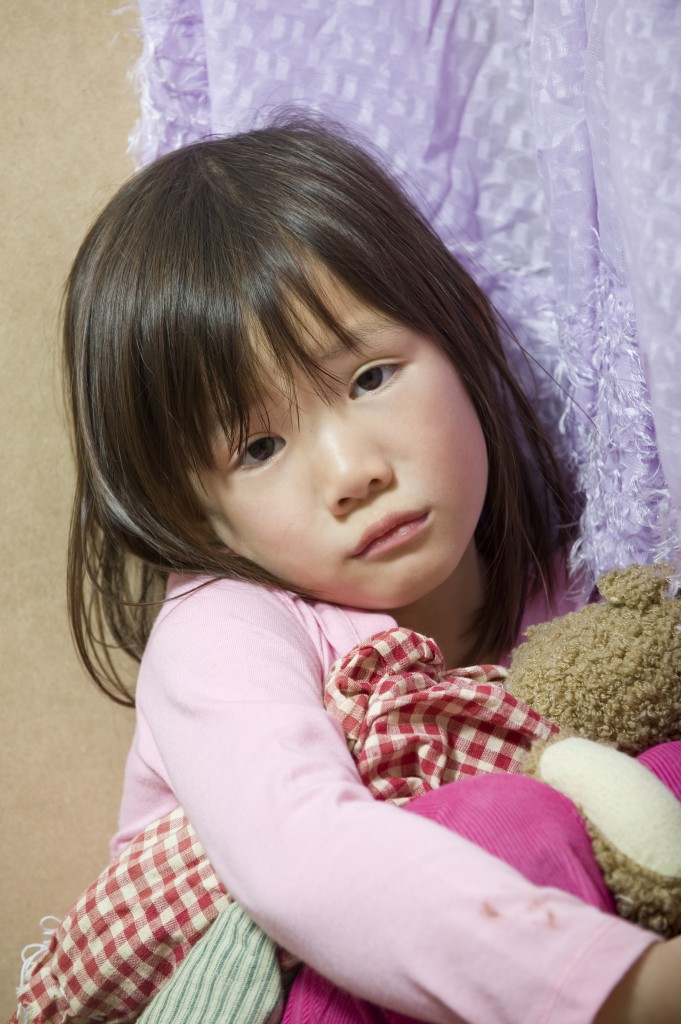
Child abuse come in four forms: physical, emotional, sexual and neglect. If you know a kid constantly wearing decorations of bruises, cuts, and burns, how often can the parents blame it on a “fall” before you become wise? Look out for tell-tale signs of not just the physical but behavioural and emotional as well. When in doubt, you can report your suspicions to the police any welfare organisations. Just be sure not to sit on the fence for too long.
Things to look out for if you suspect a child is being abused (source Kurnia):
- Sounds of constant distress or crying from a nearby house
- Bruisings, burns or broken bones, especially if they are ever present
- Injury on the child’s genitalia
- If the child is constantly in ill health and looks malnourished
- Emotional signs, such as fear or avoiding the abusive individual, or fear of adults
- Developmental issues, such as stuttering or isolation from other kids
- If the child directly tells you of abusive treatment
If you suspect a child in your neighbourhood, class, or even family, is being abused, please contact the Community Welfare Department, National Population and Family Development Board (NPFDB), Unicef, Childline Malaysia, Malaysian Child Resource Institute, or Protect and Save the Children.
WHEW. Ok that was heavy. Just to end on a slightly happier mood, here are what our very own CILISOS parents are like…
Chak: Both Nurturing-rotan hybrids. Once in a while think they are #2 but come off #5 🙂 Love ugaizzz. (and they will probably google “definition Ugaizzzz” after reading this)
Jolyn: Rojak tiger, cool, clueless and rotan, and you’ve got the people who raised me.
Lydia: As for me, 4 (nurturing) without a doubt
Matt: Definitely rotan… or feather duster/broomstick/ruler/frying pan. Dad used to whack me with his belt… while it was still on him.. :p
Uihua: Mine’s a combination of 4, 5, and 2. Mom’s completely 4, Dad started off as 5 when my sister and I were kids and is now 2. Heh
- 1.0KShares
- Facebook1.0K
- Twitter3
- LinkedIn3
- Email3
- WhatsApp8


